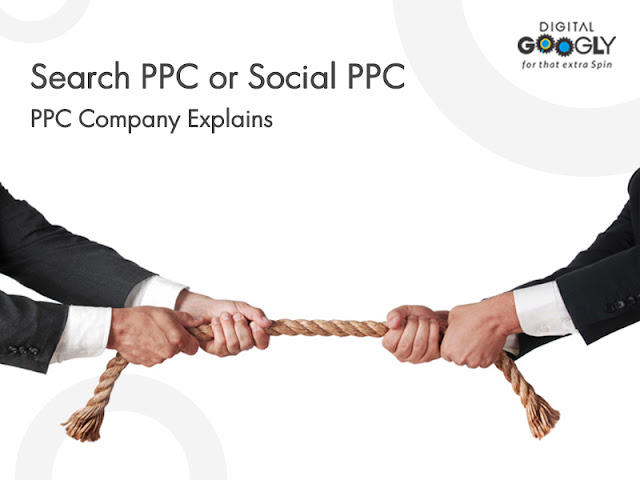Google and Facebook are both giants in their own fields. Together they have billions of daily active users - massive potential for businesses to tap into. However, it might not be feasible for companies to invest in both of these platforms for their ads.
Therefore, in this blog, a PPC company in New Jersey will explain what is paid search and paid social and their strengths and weaknesses to help you decide where to invest your ad money.
What is Paid Search?
When businesses pay to place ads on search engine results pages, this is known as "paid search" marketing or advertising. These advertisements are relevant to the query the user just typed in.
It is a type of advertisement where the company only pays for the ad once someone clicks on it.
The first three results on a SERP are usually ads, with the rest being organic websites. Both paid and organic search traffic are typically customers with a strong desire to buy; they're precious to marketers!
When someone searches for "best smartphones 2022" on Google, they're usually looking to buy a new smartphone soon or maybe right now!
Strength & Weakness of Paid Search
Strength
- Speed -
Paid search campaigns can often result in quick sales, especially if you
conduct keyword research to determine which search terms your customers
are looking for.
- High
buying intent–The target audience of PPC is customers with a high
buying intent, says a digital marketing agency in New Jersey.
Therefore, if your ad ranks high on PPC results, there is a greater chance
that customers will click through.
- A large
audience - Google has an 86.6 percent market share in
search engine queries. It means that, as opposed to social media, most
searchers are using one platform (Google.)
- Support–If you are
just starting out, Google's Ads offers self-guided courses and on-call
specialists to help you learn.
Weakness
·
Ad options -
The majority of search ads are only text. You can also use product listing ads
and display ads, including images, but those are the only ad formats available.
·
Comparison shoppers -
Because of the nature of the search, people are exposed to a plethora of
options for the same product. They can easily see you and your competitors next
to each other. Therefore, paid search is great for buyers who are ready to buy,
but it is challenging to reach people who are earlier in the buying process.
·
Targeting -
Paid search has some basic audience targeting options in terms of demographics
and location, but not nearly as many as paid social.
What is Paid Social?
Businesses pay to place ads on social media platforms such as Facebook, Instagram, Twitter, and others as part of "paid social" marketing or advertising.
According to the PPC company in New Jersey, paid social is intrusive, unlike paid search. This is because paid search is shown when a customer enters a query, and it caters to their needs.
Whereas social paid ads appear alongside and between regular content on people's social media feeds, similar to how commercials appear between segments of a TV show.
Strength & Weakness of Paid Social
Strength
·
Ad options -
Every social media platform offers various social media ad options, from images
to carousels to videos to immersive experiences.
·
The marketing funnel -
Paid social ads can be used in tandem to help people move from not knowing you
at all to becoming devoted fans and brand advocates.
·
Social media ad targeting -
Interest and demographic targeting use everything a social media platform (such
as Facebook) knows about a person to show them the most relevant ads.
·
Cost - On
average, paid social ads have a low CPC (cost per click). The cost of early
funnel discovery (impressions) is lower than the cost of late funnel conversion
(sales).
Weaknesses
·
Intrusive -
Many individuals dislike advertisements in their social media feeds as it
interferes with their scrolling experience.
·
There are numerous platforms and
solutions available - With so many social media channels to choose
from, it's difficult to know where your target audience hangs out and which
advertising they'll respond to best.
·
Cost -
While paid social has a low average cost, if you have too many ads running, a
disengaged audience, or irrelevant content, ads can rapidly get pricey, says
the PPC company in New Jersey.
·
Click-through rate
- Paid social has a low click-through rate (CTR); social media networks prefer
people to stay on the platform; therefore, your ads must be exceptional to
defeat the algorithm.
·
Rapid Change -
Because social media can vary from week to week, you must continually look for
new updates.
Hopefully, this post gives you a good understanding of
the distinctions between sponsored search and paid social.
If you have any further questions regarding paid search or paid social you can consult a digital marketing agency in New Jersey.
Subscribe by Email
Follow Updates Articles from This Blog via Email


No Comments